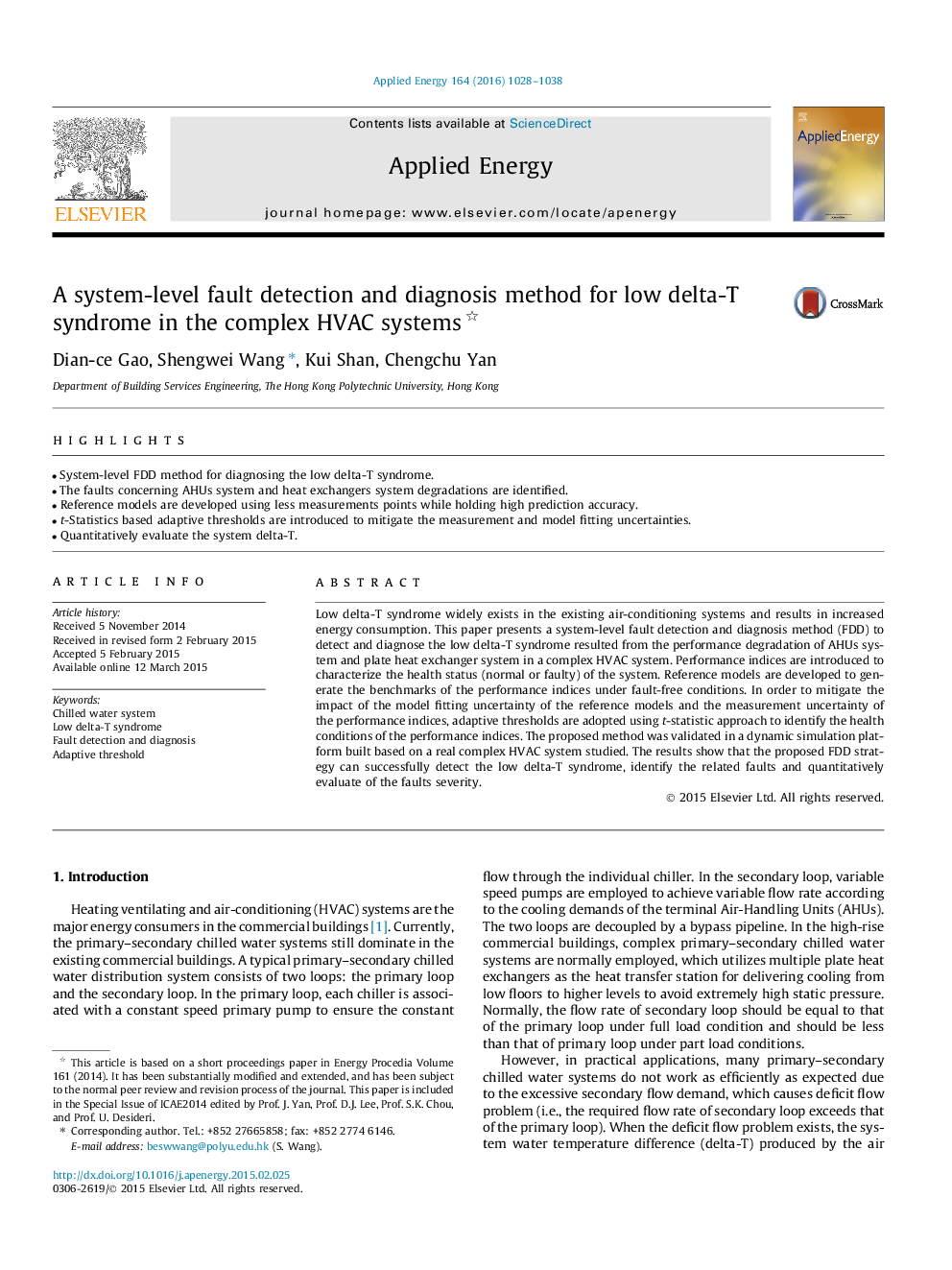| Article ID | Journal | Published Year | Pages | File Type |
|---|---|---|---|---|
| 6684436 | Applied Energy | 2016 | 11 Pages |
Abstract
Low delta-T syndrome widely exists in the existing air-conditioning systems and results in increased energy consumption. This paper presents a system-level fault detection and diagnosis method (FDD) to detect and diagnose the low delta-T syndrome resulted from the performance degradation of AHUs system and plate heat exchanger system in a complex HVAC system. Performance indices are introduced to characterize the health status (normal or faulty) of the system. Reference models are developed to generate the benchmarks of the performance indices under fault-free conditions. In order to mitigate the impact of the model fitting uncertainty of the reference models and the measurement uncertainty of the performance indices, adaptive thresholds are adopted using t-statistic approach to identify the health conditions of the performance indices. The proposed method was validated in a dynamic simulation platform built based on a real complex HVAC system studied. The results show that the proposed FDD strategy can successfully detect the low delta-T syndrome, identify the related faults and quantitatively evaluate of the faults severity.
Related Topics
Physical Sciences and Engineering
Energy
Energy Engineering and Power Technology
Authors
Dian-ce Gao, Shengwei Wang, Kui Shan, Chengchu Yan,
